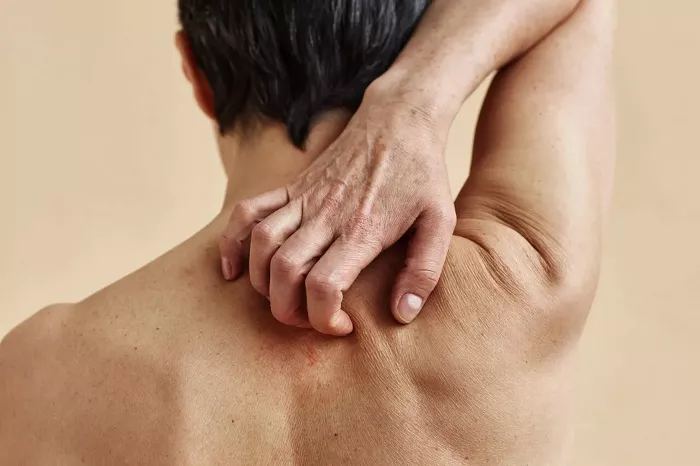For anyone who has ever suffered from eczema, psoriasis, or even a simple mosquito bite, the urge to scratch can feel overwhelming. That momentary relief—the sheer satisfaction of nails meeting irritated skin—is one of life’s most primal comforts. Yet, as new research reveals, scratching is a double-edged sword: while it temporarily soothes, it ultimately fuels a vicious cycle of inflammation, spreading itchiness and even altering immune responses in ways scientists are only beginning to understand.
The Neuroscience of Scratching: Why It Feels So Good (At First)
Scratching an itch triggers a complex neurological response. When you drag your nails across irritated skin, the action sends signals to the brain that temporarily override the itch sensation. This creates a fleeting sense of relief—akin to pressing a reset button on discomfort. But this relief is deceptive. Within minutes, the itch often returns, stronger than before.
Dr. Martin Smith, an immunologist at the Cleveland Clinic, explains that scratching doesn’t actually resolve the underlying irritation. Instead, it stimulates nerve cells that release neurochemicals, amplifying the body’s inflammatory response. The brain interprets scratching as a form of self-defense, but in reality, it’s making the problem worse.
The Immune System’s Overreaction: How Scratching Worsens Inflammation
Recent research published in Science reveals that scratching does more than just irritate the skin—it triggers a full-blown immune reaction. When skin is scratched, nerve cells release a substance called substance P, which activates mast cells, the immune system’s first responders to injury or allergens. These mast cells then flood the area with histamine, the same chemical responsible for allergy symptoms like sneezing and watery eyes.
But the damage doesn’t stop there. Scratching also prompts the release of inflammatory proteins called interleukin-4 (IL-4) and interleukin-13 (IL-13), which heighten nerve sensitivity. This means that after scratching, the skin becomes even more reactive, turning a minor itch into an unrelenting urge.
The Itch That Spreads: How Scratching One Spot Can Trigger More
One of the most frustrating aspects of chronic itching is how scratching one area can suddenly make other parts of the body feel itchy too. Scientists now attribute this phenomenon to a chemical called interleukin-31 (IL-31), often dubbed the “itchy cytokine.”
When skin is scratched, IL-31 enters the bloodstream and travels to other regions, essentially “infecting” them with itchiness. This explains why eczema and psoriasis patients often find themselves trapped in a never-ending loop—scratching one patch of skin only leads to new flare-ups elsewhere.
The Surprising Benefit of Scratching: A Hidden Defense Against Infection
Despite its many downsides, scratching may serve at least one useful purpose. The same study found that in mice, scratching helped reduce bacterial load on the skin, suggesting it plays a role in fighting infections. This could explain why the body instinctively encourages scratching—especially in conditions like eczema, where the skin barrier is weakened and infections are common.
However, this benefit comes at a steep cost. While scratching might help fend off bacteria, the resulting inflammation and nerve sensitization make the long-term trade-off unfavorable.
The Future of Itch Treatment: Beyond Antihistamines and Steroids
Current treatments for chronic itching—such as antihistamines, corticosteroids, and moisturizers—focus on managing symptoms after they appear. But the latest research suggests that future therapies could target the root cause by blocking substance P or intercepting inflammatory signals before they spiral out of control.
Dr. Daniel Kaplan, a dermatology and immunology professor at the University of Pittsburgh and lead author of the study, believes these findings could lead to a new class of anti-itch medications. “Instead of just calming inflammation after it starts, we may one day prevent the itch-scratch cycle entirely,” he says.
The Bottom Line: To Scratch or Not to Scratch
For now, the best advice remains the hardest to follow: resist the urge. Scratching might bring momentary relief, but it ultimately prolongs suffering. As scientists work toward better treatments, the key to managing chronic itch lies in breaking the cycle—one restrained scratch at a time.
Related topics:
- Is Itching A Menopause Symptom? The Truth Unveiled
- Pollen Apocalypse: These US Cities Are Becoming Unlivable for Allergy Sufferers
- How Bacterial Pharyngitis Affects Your Body: A Closer Look


